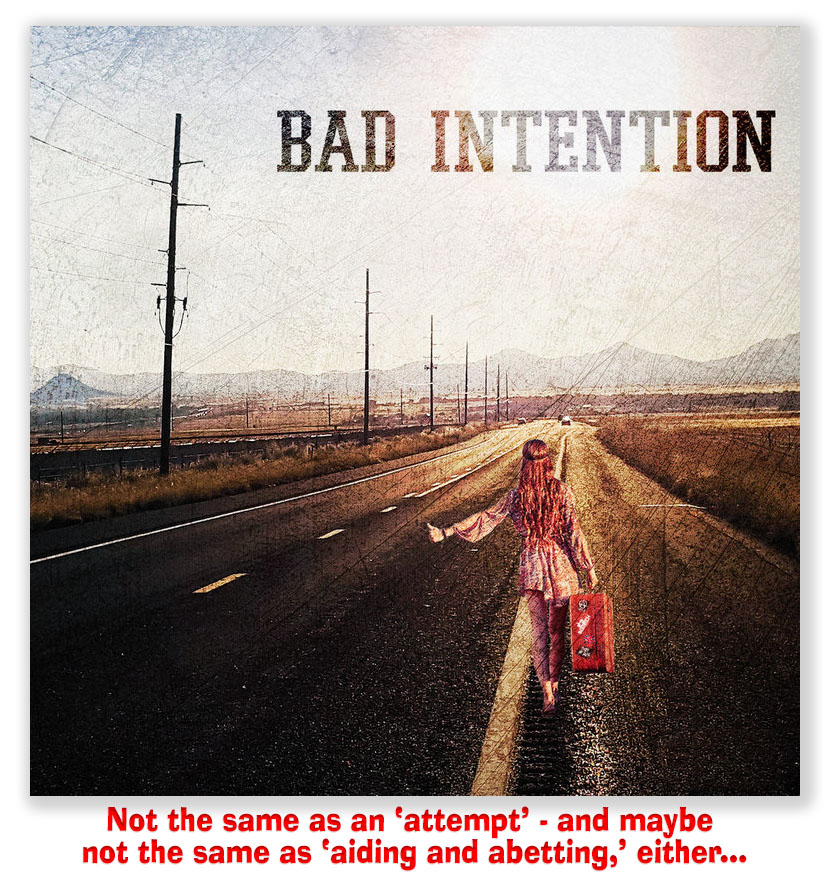We post news and comment on federal criminal justice issues, focused primarily on trial and post-conviction matters, legislative initiatives, and sentencing issues.

WHO CARES ABOUT TWITTER AND ISIS, ANYWAY?
 The Supreme Court has awakened from its slumber, issuing six opinions last Thursday as it begins its annual sprint to finish its work by June 30th. None of the six was a criminal case, but the Court did decide an important question about the liability of social media platforms like Twitter, Meta and Google for spreading terrorism-related content posted by ISIS and its fellow travelers.
The Supreme Court has awakened from its slumber, issuing six opinions last Thursday as it begins its annual sprint to finish its work by June 30th. None of the six was a criminal case, but the Court did decide an important question about the liability of social media platforms like Twitter, Meta and Google for spreading terrorism-related content posted by ISIS and its fellow travelers.
Under 18 USC § 2333, U.S. nationals who have been “injured… by reason of an act of international terrorism” may sue for damages both from the terrorists themselves and “any person who aids and abets, by knowingly providing substantial assistance, or who conspires with the person who committed such an act of international terrorism.” The plaintiffs in Twitter v. Taamneh argued that social media companies aided and abetted ISIS by letting the terrorists use social media platforms to recruit new terrorists and raise funds.
Recognize the old legal chestnut “aid and abet?” Ever since United States v. Taylor held that an attempted Hobbs Act robbery was not a crime of violence that could support an 18 USC § 924(c) conviction (which comes with a mandatory consecutive sentence starting at five years), I have wondered why the same analysis wouldn’t hold that aiding and abetting a crime of violence was not itself a crime of violence.
In Taamneh, the Court observed that nothing in the statute defines ‘aids and abets’, but the term “is a familiar common-law term and thus presumably ‘brings the old soil’ with it.” Taamneh holds that
overly broad liability [for aiding and abetting] would allow for one person [to] be made… a felon against his or her consent, and by the mere rashness or precipitancy or overheated zeal of another… To keep aiding-and-abetting liability grounded in culpable misconduct, criminal law thus requires that a defendant in some sort associate himself with the venture, that he participate in it as in something that he wishes to bring about, that he seek by his action to make it succeed before he could be held liable. In other words, the defendant has to take some “affirmative act” with the intent of facilitating the offense’s commission. Such intentional participation can come in many forms, including abetting, inducing, encouraging, soliciting, or advising the commission of the offense, such as through words of encouragement or driving the getaway car.
 The ‘so what’ to all of this is that under Taylor, an attempt to commit a crime of violence was held not to be a crime of violence itself under the elements clause. “Yes, to secure a conviction the government must show an intention to take property by force or threat, along with a substantial step toward achieving that object,” the Taylor Court said. “But an intention is just that, no more. And whatever a substantial step requires, it does not require the government to prove that the defendant used, attempted to use, or even threatened to use force against another person or his property.”
The ‘so what’ to all of this is that under Taylor, an attempt to commit a crime of violence was held not to be a crime of violence itself under the elements clause. “Yes, to secure a conviction the government must show an intention to take property by force or threat, along with a substantial step toward achieving that object,” the Taylor Court said. “But an intention is just that, no more. And whatever a substantial step requires, it does not require the government to prove that the defendant used, attempted to use, or even threatened to use force against another person or his property.”
The Taamneh Court suggests that “words of encouragement” – such as sitting around drinking a few beers and telling your buddy that robbing the cellphone store tomorrow sounds like a great idea could make you an aider and abettor if the next day he takes down the Verizon outlet at gunpoint. The Taylor court said that if you could be convicted of the underlying crime without attempting, threatening or carrying out an act of violence, you could not be held liable for an 18 USC § 924 offense because of that conviction.
 Like an attempt to commit a Hobbs Act robbery, aiding and abetting a Hobbs Act robbery could be committed without the guilty party attempting, threatening or committing an act of violence. Just ask the guy drinking the beer. Or the one who holds your beer while you commit the Hobbs Act crime.
Like an attempt to commit a Hobbs Act robbery, aiding and abetting a Hobbs Act robbery could be committed without the guilty party attempting, threatening or committing an act of violence. Just ask the guy drinking the beer. Or the one who holds your beer while you commit the Hobbs Act crime.
I believe that Taamneh hastens the day that “aiding and abetting” a crime of violence may join “attempting” a crime of violence as falling short of supporting a mandatory consecutive 18 USC § 924(c) sentence.
Twitter, Inc v. Taamneh, Case No 21-1496, 2023 US LEXIS 2060 (May 18, 2023)
United States v. Taylor, 142 S.Ct. 2015 (2022)
Sentencing Law and Policy, Some extended discussion of criminal doctrines as SCOTUS unanimously dismisses federal tort suit against Twitter alleging “aid” to ISIS (May 18, 2023)
– Thomas L. Root

